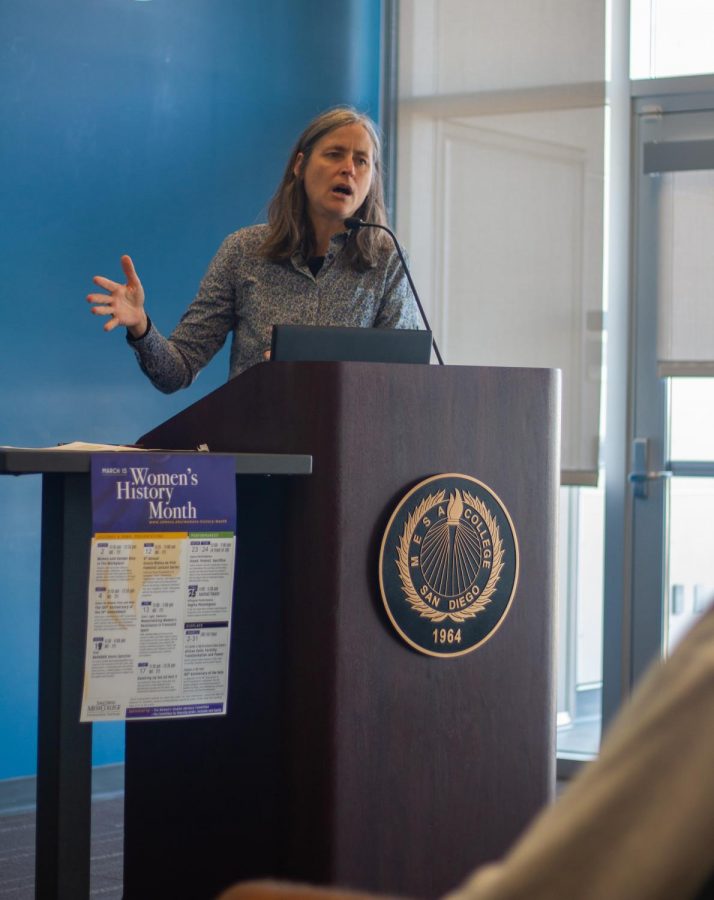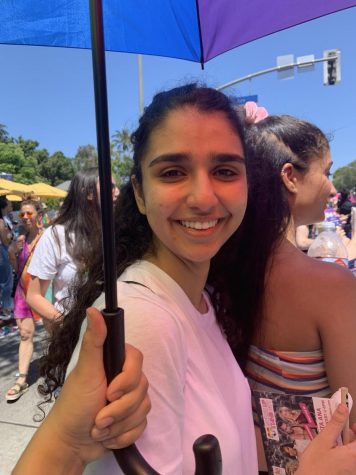If one were a woman in the 19th century, they wouldn’t have basic human rights. Their right to vote, their right to own property, and their right to an education would all be taken away.
It’s important to recognize the progress that women have made throughout history. The rights taken for granted today are rights that women never had in the 1700s through the early 1900s.
Here at Mesa, women’s history month will not only be recognized, it will be celebrated. The right to vote has been a right that women have fought many years for. This year marks the 100 year anniversary of the enactment of the 19th Amendment, the amendment that gave women the right to vote.
On March 5, Mesa held a conference to celebrate the 100 year anniversary of the 19th Amendment. The speakers included Jennifer Hernandez, who specializes in American and women history, Erica Salinas, whose research interests include Latinx politics, race and ethnicity, and policing and immigration, and Michelle Rodriguez, who serves on the Mesa college environmental sustainability committee and is the advisor for the Mesa pre-law club.
These women spoke in depth about women’s suffrage, their right to vote, and the role women play in politics today. According to Jennifer Hernandez, “The reason women want the right to vote is so that they can make changes politically.”
The panelists mentioned important women that played a big role in the creation of the 19th Amendment. Among these women were the two main leaders of the women’s suffrage movement in the 19th century, Susan B. Anthony and Elizabeth Cady Stanton. Under the 15th Amendment, all people who were citizens of the United States had the right to vote, yet women still weren’t given this right. Thus, the 19th Amendment was born.
Despite all the talk about women’s right to vote, they didn’t fail to mention African American women and their struggle to vote. Although the 19th Amendment gave women the right to vote, this right did not extend to African American women. According to Erica Salinas, “African American women had been struggling since the 19th century for greater political, social, and economic freedoms.” Fannie Lou Hamer, an African American women’s rights activist, was yet another significant figure during the women’s suffrage movement. Co-founding the National Women’s Political Caucus, she created an environment in which women of all races could come and learn more about elections and how to become involved in politics.
With the conference coming to an end, the conversation was brought to women in the political world today. Although we’ve come a long way, the speakers made it a point to recognize how much we have left to do. As mentioned by speaker Michelle Rodriguez, studies have shown that in the previous years, women tend to participate in political activities far less than men. This includes expressing interests in politics, giving political donations, and engaging in activities other than voting.
That being said, Rodriguez didn’t fail to mention the possibility that the youngest generation is actually the first generation that is more likely than their male counterparts to engage in political activities. More women than men in the 15-24 age group have said that they’ve been involved in political activities, such as attending a public rally or following a campaign or organization online.
Sharing the history of these women provoked a conversation amongst the audience about women’s voting rights today. The message behind the conference was not only to inform people about what women had to go through to get the rights they deserved, but to get people to talk about women’s roles in today’s society.
We’ve come a long way, but we still have so much more to do.


